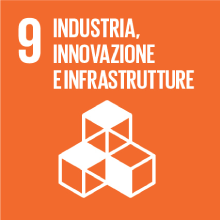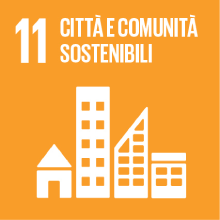GLOBAL HISTORY
- Anno accademico
- 2021/2022 Programmi anni precedenti
- Titolo corso in inglese
- GLOBAL HISTORY
- Codice insegnamento
- LM6320 (AF:362936 AR:191820)
- Modalità
- In presenza
- Crediti formativi universitari
- 6
- Partizione
- Cognomi M-Z
- Livello laurea
- Laurea magistrale (DM270)
- Settore scientifico disciplinare
- M-STO/02
- Periodo
- II Semestre
- Anno corso
- 1
- Spazio Moodle
- Link allo spazio del corso
Inquadramento dell'insegnamento nel percorso del corso di studio
Objectives:
-Provide students with a clear theoretical and empirical framework to understand the concept of Global and Globalization according to an historical perspective
-Analyze themes of Global History in a multidisciplinary perspective able to encompass political, economic and cultural factors
-Analyze how the methodology of Global History could give new outlooks also on national histories, starting from the case of Italy
-Analyze the key-themes of Globalization (the intertwinement between economic, political and cultural networks) and their historical development during the Early Modern Age
The above-mentioned four specific objectives aim to give students the instruments necessary to develop a critical and personal view of the topics discussed and to develop an independent and multidisciplinary methodology for the analysis of historical phenomena to better understand the present
Risultati di apprendimento attesi
- Understand the general framework of Global History and Globalization
- Understand the global approach to history
- Understand the multidisciplinary character of Global History through the thematic cases presented
- Understand the processes of Globalization during the Early Modern Age
2. Ability of applying knowledge and understanding
- Understand the general framework of Global History and Globalization> Ability of discussing subjects related to the field (Global History) in a specialized language and according to an historical methodology and to explain them to classmates
- Understand the global approach to history > Ability of comprehending the methodology of Global History and to confront it with other instrument of analysis they already master from previous studies (e.g. European history, Atlantic history, History of International Relations)
- Understand the multidisciplinary character of Global History through the thematic cases presented> Ability of applying the historical methodology through the cases analyzed also to other fields of study (e.g. final dissertation)
- Understand the processes of Globalization during the Early Modern Age > Ability of analyzing events and phenomena in an historical dimension
3. Judgement abilities
- Ability of connecting the facts and data learnt during lessons
- Ability of organizing the course materials (lessons and readings) in a coherent interpretation
- Ability of interpreting and commenting the weekly reading materials
4. Communicative abilities
- Ability of presenting the issues related to the field of study using specialized language
- Ability of presenting the knowledge acquired from lessons and readings in a coherent discourse
- Ability to gather data and to create learning supports (e.g. hand-out, ppt presentation) in order to present one own’s results during lessons and seminars
5. Learning abilities
- Ability of taking notes during lessons
- Ability of critically reading the assigned bibliography
- Ability of connected the knowledge acquired to nowadays issues
Prerequisiti
Students who realize they do not possess the requested basic knowledge can follow the class, but are kindly invited to catch up with the basics before taking the exam. They might refer to:
-Introduzione alla storia moderna, a cura di Marco Bellabarba, Vincenzo Lavenia, Bologna, Il Mulino, 2018
-The Oxford handbook of early modern european history, 1350-1750, edited by Hamish Scott, Oxford, Oxford University Press, 2015
-The Oxford handbook of the Atlantic world : c.1450-c.1850 / edited by Nicholas Canny and Philip Morgan, Oxford, Oxford University Press, 2011
Students must fulfill the minimum credit requirements (ECTS) for the admission to the MA in Comparative International Relations. Therefore, they must possess at least 6 ECTS from the Political-logical-social and historical Field.
Contenuti
1) The first part of the course will give a general outlook on the field and its main topics
- The concepts of Global and Globalization; The theoretical debate on Global History and the origins of a Global World; The Early Modern perception of a Global World between cartography and historiography
- Global History and Microhistory: a theoretical approach and a case study (Italy in a global context)
- The process of Globalization during the Early Modern Age
a. Commerce, exploration, conquest and the circulation of things and people: routes, global goods, theories (mercantilism and the rise of political economy)
b. Politics: institutions (modern-states, state nations, international law) and human rights
c. Population: migration, slave trade, urbanization, the biological and environmental impact
d. Culture: the creation of a global public sphere, information and its media, the transfer of knowledge, the concept of celebrity
2) The second part of the course will analyze a specific case study: port cities and free ports as incubators of innovation and global integration at a commercial, political social and cultural level (16th – 19th centuries). It will focalize particularly on:
a. the creation and definition of free ports
b. free ports and the concept of neutrality
c. free ports and the development of global trade
d. free ports and the mobility of people
e. free ports and the management of public health issues
Both during part 1 and part 2, each week, a text or a group of texts will be assigned to the students, they will be then discussed in class: participation is in fact warmly encouraged (see assessment methods). The texts will be regularly uploaded on moodle.
3) The third part of the course will be seminarial. It will be based on the discussion of the themes presented in part 1-2 and of four prominent monographs which illuminate major case studies of early modern global history (see below referral texts).
Testi di riferimento
Students who regularly attend the class should prepare the exam on:
1. their class notes and the slides (available on moodle)
2. one of books listed below (a, b, c, or d - see assessment methods)
Students who do not attend the class regularly, should prepare the exam on:
1. The book by Charles H. Parker, Global interactions in the Early Modern Age, 1400-1800, Cambridge, Cambridge University Press, 2010 (available also in e-book format)
2. One of books listed below (a, b, c, or d)
All students will be asked to choose one of the following books:
a. Anya Zilberstein, A temperate empire: making climate change in early America, Oxford, Oxford University Press, 2016 (the book will be discussed in lesson 12)
b. Giuseppe Marcocci, The globe on paper : writing histories of the world in Renaissance Europe and the Americas, Oxford, Oxford University Press, 2020 (the book will be discussed in lesson 13)
c. Robert Darnton, Censors at work: how states shaped literature, New York-London, W. W. Norton & Company, 2015 (the book will be discussed in lesson 14)
d. David A. Bell, Men on horseback : the power of charisma in the Age of Revolution, New York, Farrar, Straus and Giroux, 2020 (the book will be discussed in lesson 15)
Modalità di verifica dell'apprendimento
a).Students will be asked to actively participate in lessons, debating on the weekly-assigned texts. At the end of the first part of the course (before lesson 12), they will be asked to submit a written paper (1.500-2.000 words) in which they critically discuss the chosen book, in relation with the other materials and topics presented in class (lessons 1-11), and also by comparing them with today's issues. Students will be asked to pick the book and start to think about their essay by lesson 4, so that the last part of the course, which will be seminarial, can be organized. Based on the composition and size of the class, the papers can be discussed with an individual or group oral presentation in lessons 12-15. In any case, lessons 12-15 will be seminars during which there will be a general discussion about the books (see above, referral texts).
The written paper will receive a score between 0 and 3 and such score will be added, in case, to the grade achieved in the oral exam (Expected learning results 2.Ability of applying knowledge and understanding, 3.Judgement abilities and 4. Communicative abilities)
b).Final oral exam. The exam aims to assess the critical understanding of the contents discussed during the course and the individual reflection on the assigned bibliography. It will therefore consist of three questions. The approximate duration is 25-30 minutes.
-The first question will ask students to to discuss and present their essay (see above), so that he/she can show his/her ability of organizing information in a coherent discourse and in a historical perspective, to critically engage them and to integrate them with previously acquired knowledge (expected learning results 1.Knowledge and understanding and 4. Communicative abilities).
-The second question will be on an issue explored during lessons so that the student can show his/her ability of personal re-elaboration and of critical listening (expected learning results 3.Judgement abilities and 5.Learning abilities).
-The third question will concern the texts assigned, so that the student can show his/her ability of critical reading, understanding of scholarly literature connection with already acquired information (expected learning results 2.Ability of applying knowledge and understanding and 5. Learning abilities) .
NON-ATTENDING STUDENTS
Non-attending students will have to thoroughly study the chosen book, along with all the other materials (see above referral texts).
Final oral exam. The exam aims to assess the critical understanding of the contents discussed during the course and the individual reflection on the assigned bibliography. It will therefore consist of three questions. The approximate duration is 25-30 minutes.
-The first question will ask students to to discuss their chosen book (see above), so that he/she can show his/her ability of organizing information in a coherent discourse and in a historical perspective, to critically engage them and to integrate them with previously acquired knowledge (expected learning results 1.Knowledge and understanding and 4. Communicative abilities).
-The second and third question will be on an issue explored in the reading list and in Parker’s book so that the student can show his/her ability of personal re-elaboration, critical reading, understanding of scholarly literature connection with already acquired information (expected learning results 2.Ability of applying knowledge and understanding, 3.Judgement abilities and 5.Learning abilities).
Modalità di esame
Metodi didattici
Seminars (lessons 12-15)
Case study analysis
Ppt presentations
Digital Humanities
Please note that based on the Covid-19 situation teaching methods may slightly vary. In any case, they will aim to ensure the analysis of the contents listed in the programme and the active participation of the students
Altre informazioni
Students with disabilities can contact the Disability and Accessibility Office (disabilita@unive.it) to take advantage of the services available (e.g. alternative examination methods, readers, etc.).
Students interested in carrying out a master's degree thesis in Global History can contact the professor, after passing the exam, for the appropriate vademecum (by writing directly to giulia.delogu@unive.it) or they can meet to the professor in her office hours. A preliminary vademecum is available at the Notices section of the professor's webpage.
Obiettivi Agenda 2030 per lo sviluppo sostenibile
Questo insegnamento tratta argomenti connessi alla macroarea "Città, infrastrutture e capitale sociale" e concorre alla realizzazione dei relativi obiettivi ONU dell'Agenda 2030 per lo Sviluppo Sostenibile


